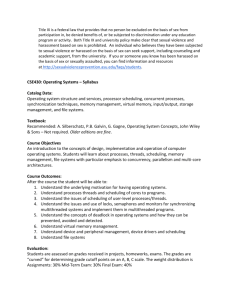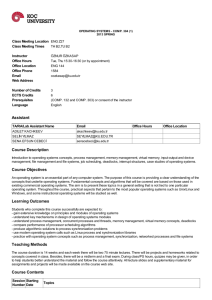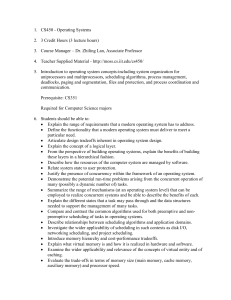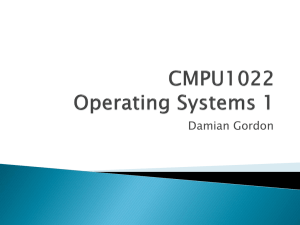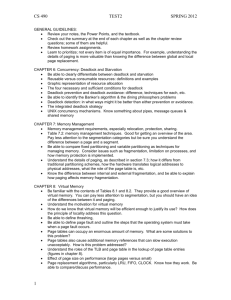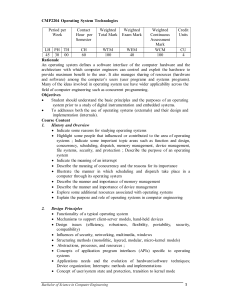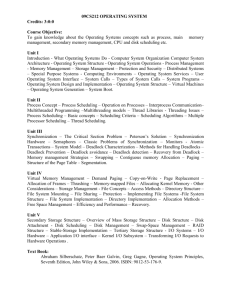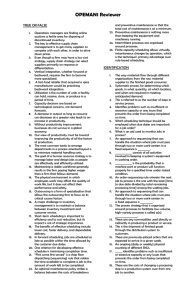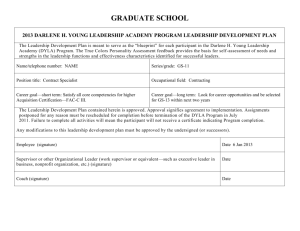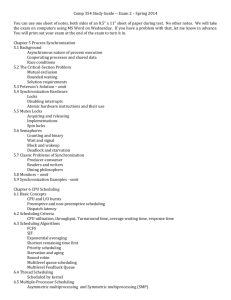Syllabus
advertisement
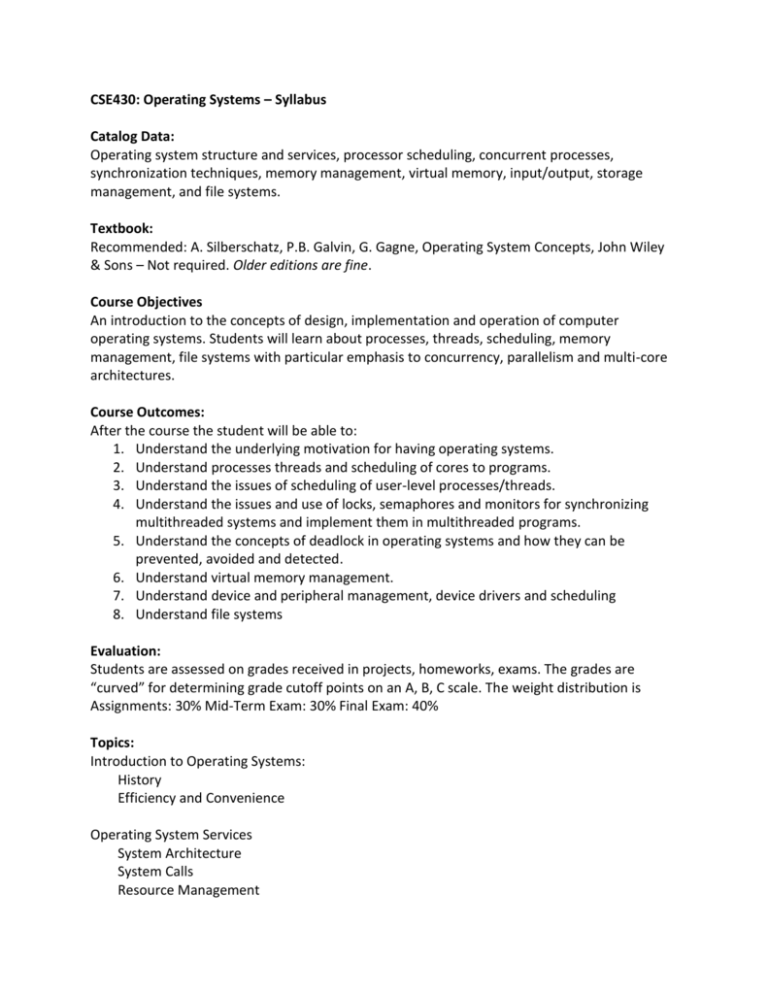
CSE430: Operating Systems – Syllabus Catalog Data: Operating system structure and services, processor scheduling, concurrent processes, synchronization techniques, memory management, virtual memory, input/output, storage management, and file systems. Textbook: Recommended: A. Silberschatz, P.B. Galvin, G. Gagne, Operating System Concepts, John Wiley & Sons – Not required. Older editions are fine. Course Objectives An introduction to the concepts of design, implementation and operation of computer operating systems. Students will learn about processes, threads, scheduling, memory management, file systems with particular emphasis to concurrency, parallelism and multi-core architectures. Course Outcomes: After the course the student will be able to: 1. Understand the underlying motivation for having operating systems. 2. Understand processes threads and scheduling of cores to programs. 3. Understand the issues of scheduling of user-level processes/threads. 4. Understand the issues and use of locks, semaphores and monitors for synchronizing multithreaded systems and implement them in multithreaded programs. 5. Understand the concepts of deadlock in operating systems and how they can be prevented, avoided and detected. 6. Understand virtual memory management. 7. Understand device and peripheral management, device drivers and scheduling 8. Understand file systems Evaluation: Students are assessed on grades received in projects, homeworks, exams. The grades are “curved” for determining grade cutoff points on an A, B, C scale. The weight distribution is Assignments: 30% Mid-Term Exam: 30% Final Exam: 40% Topics: Introduction to Operating Systems: History Efficiency and Convenience Operating System Services System Architecture System Calls Resource Management Security and Operating System Operation Protection – user and kernel modes Booting and Secure Booting of OS Patching of Vulnerabilities and Vulnerability Windows Installations, Configurations and Kernel Modules CPU Scheduling Concepts Context Switching Multi-Processing Long and Short term Scheduling Comparison of Scheduling Algorithms Timesharing Concepts Concurrent Processes Concurrency Race Conditions Mutual Exclusion and Synchronization Synchronization Techniques Concurrent Programming Semaphores Concurrent Programming Paradigms Readers/Writers, Dining Philosophers Language Support: Regions and Monitors Message Passing. Memory Management: Memory Allocation protocols Paging/Segmentation Virtual Memory Demand Paging Page Replacement Deadlock Handling Deadlock Concepts and Conditions Avoidance and Prevention Banker's Algorithm Device Management: Disks and Peripherals Device Drivers Disk Scheduling File Systems File Naming Directory Management File Access Methods Protection
